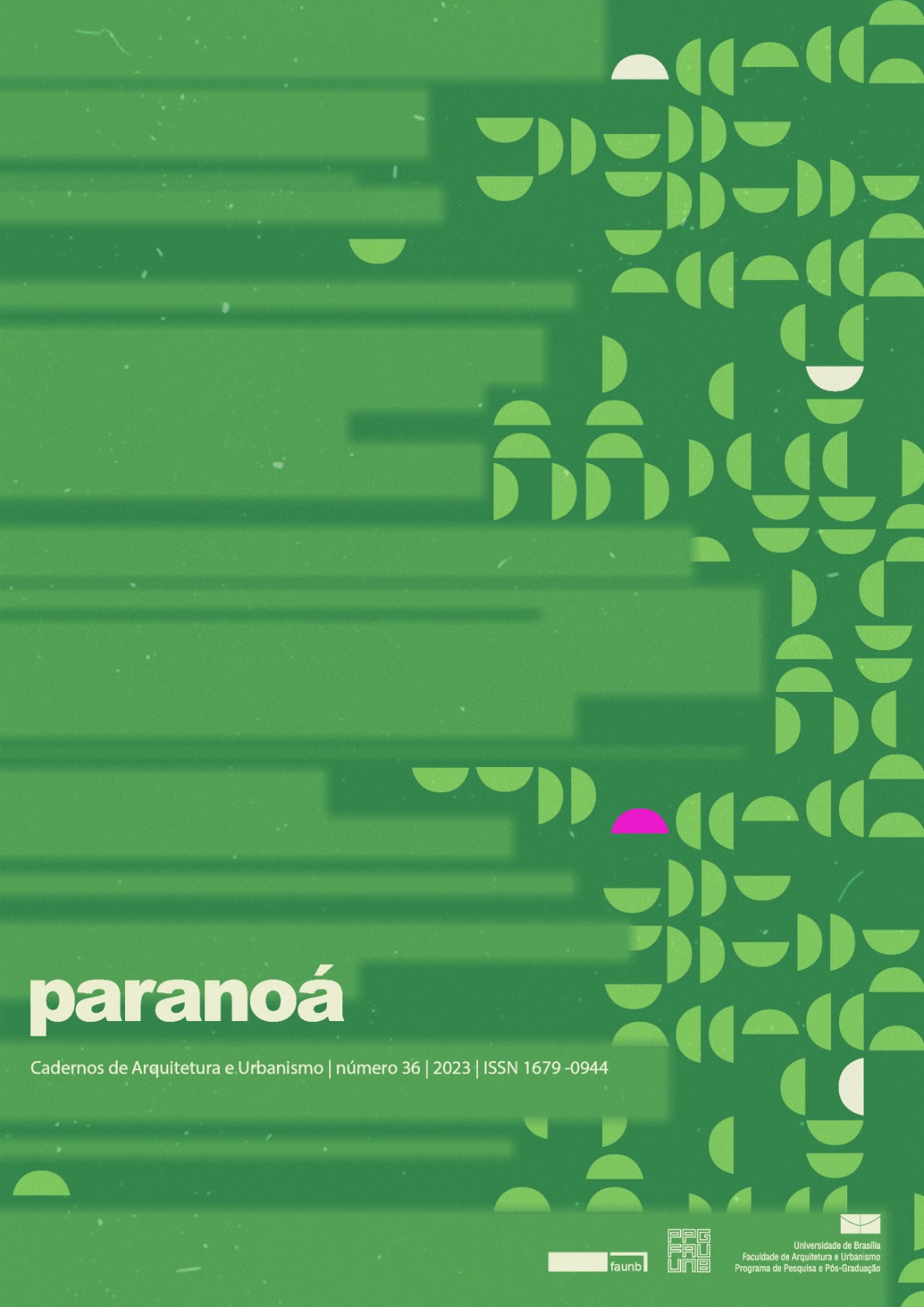Importance of heritage recognition in Caetité: modern buildings in a historic city of Alto Sertão Baiano
DOI:
https://doi.org/10.18830/issn.1679-0944.n36.2023.04Keywords:
Modernism, Architectural Heritage, Cultural heritageAbstract
The article aims to discuss about the need the necessity of the preservation of a set of buildings erected in the mid 1960´s, respectected as modern ones, situated in Caetité- Bahia. The (co)existence in the above mentioned municipality of row houses correlated to the ecleticism and bound to the formation of the urban framework with modern assets, requires special attention, since all are witnesses of different moments in local history.
It is in the dialogue between the times and historical values that a contextualization points at a possible risk: the recall of the “pretérito perfeito”, the amnesia of the “’pretérito imperfeito’”. If, on one hand, along the the olden times of barons and colonels it is framed and hung on the wall of its people´s memory; on the other hand, in the same timeline, the given moment in the 1960´s has been extended to the contemporaneity, showing timidly its merit.
It is awake, therefore, the thought about the understanding of the history as a continuous process that involves different achivements and moments. Moreover, this research is about buildings which are tied to the modernist aesthetics, in a city which is strongly linked to the architectural expression of previous centuries; they also translate peculiarities and are available to be understood as Cultural Heritage.
Downloads
References
Escritório de Arte. Diógenes Rebouças Biografia. Escritório de Arte. Disponível em
<https://www.escritoriodearte.com/artista/diogenes-reboucas>. Acesso em: 15 de junho de 2021.
ESTRELA, Ely Souza. Os Sampauleiros: cotidiano e representações. 1. ed. São Paulo: FAPESP, 2003.
Ipac. Conjunto Urbanístico e Arquitetônico de Caetité. Ipac. Disponível em
<http://patrimonio.ipac.ba.gov.br/bem/conjunto-urbanistico-e-arquitetonico-de-caetite- poligonal/>. Acesso em: 15 de junho de 2021.
NEVES, J. L. Pesquisa qualitativa – características, uso e possibilidades. Cadernos de pesquisa em administração, São Paulo. V. 1, nº 3, 2ºsem. 1996.
SANTOS, Helena Lima. Caetité “Pequenina e IlustreErro! Indicador não definido.”. Composto e Impresso na Escola Gráfica N. S. de Lorêto, Convento da Piedade, Salvador - Bahia, 1976.
SCHLEE, Andrey; MEDEIROS, Ana; FERREIRA, Oscar. Preservação e Patrimônio Cultural em Apoio à Reabilitação e ao Planejamento Urbano in REABILITA - Curso de pós-graduação lato sensu em Reabilitação Ambiental Sustentável Arquitetônica e Urbanística. Faculdade de Arquitetura e Urbanismo, Universidade de Brasília. Brasília, 2021.
SCHLEE, Andrey Rosenthal. O Ecletismo na Arquitetura Pelotense Até as Décadas de 30 e 40. Dissertação de Mestrado – Faculdade de Arquitetura e Urbanismo, Universidade Federal do Rio Grande do Sul, 1993.
SCHLEE, Andrey; FICHER, Sylvia. Bahia – um outro modernismo: paralelo e escamoteado. 2º Seminário DOCOMOMO Norte/Nordeste, 2008.
SOUZA, Fabiana dos Santos. Premissas Projetuais para Ambientes da Educação Infantil: Recomendações com base na observação de três UMEIs de Belo Horizonte, MG. Tese de Doutorado – Faculdade de Arquitetura e Urbanismo, Universidade Federal do Rio de Janeiro, 2009.
Downloads
Published
How to Cite
Issue
Section
License
Copyright (c) 2023 Paranoá

This work is licensed under a Creative Commons Attribution 4.0 International License.
Autores que publicam nesta revista concordam com os seguintes termos:
- Autores mantém os direitos autorais e concedem à revista o direito de primeira publicação, com o trabalho simultaneamente licenciado sob a Licença Creative Commons Attribution que permite o compartilhamento do trabalho com reconhecimento da autoria e publicação inicial nesta revista. http://creativecommons.org/licenses/by/4.0
- Autores têm autorização para assumir contratos adicionais separadamente, para distribuição não-exclusiva da versão do trabalho publicada nesta revista (ex.: publicar em repositório institucional ou como capítulo de livro), com reconhecimento de autoria e publicação inicial nesta revista.
- Autores têm permissão e são estimulados a publicar e distribuir seu trabalho online (ex.: em repositórios institucionais ou na sua página pessoal) a qualquer ponto antes ou durante o processo editorial, já que isso pode gerar alterações produtivas, bem como aumentar o impacto e a citação do trabalho publicado (Veja O Efeito do Acesso Livre).















